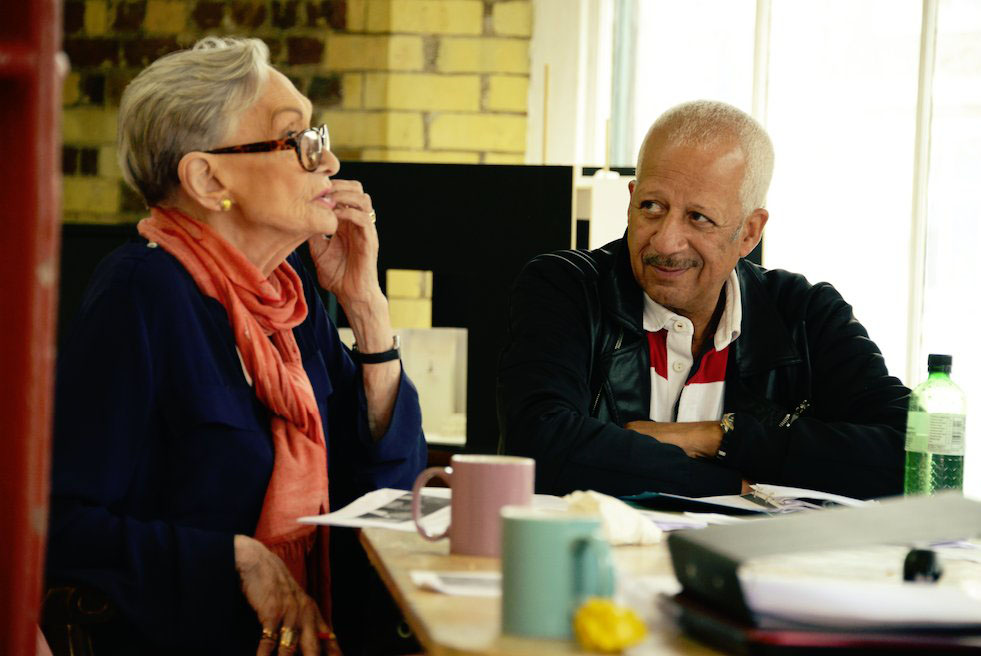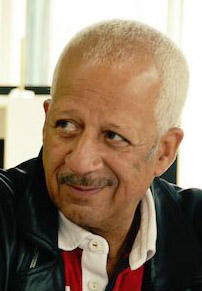 Derek Griffiths stars as Hoke Colburn opposite Sian Phillips in Driving Miss Daisy which is at the Everyman in Cheltenham from 9th October. Best known for his many television appearances he talks about the play and his joy at returning to live theatre.
Derek Griffiths stars as Hoke Colburn opposite Sian Phillips in Driving Miss Daisy which is at the Everyman in Cheltenham from 9th October. Best known for his many television appearances he talks about the play and his joy at returning to live theatre.
What are you most relishing about playing Hoke Colburn?
It’s a pleasant character and I like the history that’s attached to it, especially the Civil Rights Movement. For the younger elements of our audience who perhaps don’t have much knowledge of the Civil Rights Movement and the division between black and white, it’s a good thing for them to learn about. It’s also a charming play. It’s quite amazing how you get the contrast between the two characters with a huge divide, a huge moat, between them and how friendship joins them together towards the end. It’s heartwarming.
Can you relate to Hoke in any way?
No, not at all [laughs] apart from being a driver. But I’ve always liked character work and playing someone who is so outside of me. Strapping on a character is part of the joy of the business.
Are there any particular challenges for you about how he ages over the course of the play?
Hoke does ages but it’s a gradual process. It happens over a few scenes. And I know quite a few octogenarians who haven’t slowed down at all so it’s quite difficult to guage it really. Octogenarians in our business go on until the end whereas I know people outside of the business at age 50 or 60 who are acting like old men. You take a pick out of each one and dress it up slowly.
Alfred Uhry’s play premiered in 1987. What do you feel makes it so enduring?
I think it’s the charm of it. Everybody remembers the film and I’ve met fewer people who have seen the play, but everybody talks about the charm of it and it’s all-encompassing. A lot of people who are normally non-theatregoers are telling me they’re coming to see it and it’s because of the charm and the fact it’s an easily digestible piece.
The story spans 24 years from 1948-1973. Are there key themes that still resonate today?
Yes, absolutely, especially with Mr Trump. It’s amazing how it’s all come back to the fore and has become far more relevant. If you think in terms of the rioting that’s happening, the play goes right through that 1963 period where we have the riotings and the bombings in Alabama and the lynchings. It’s all there within the piece but it’s very gentle – it’s in the background. It’s mentioned but it isn’t sort of pressed upon.
Have you done any research into the era and if so is there anything you’ve been intrigued or interested to learn?
My first play in the business was at the Greenwich Theatre in 1969 and it was a documentary on stage about Martin Luther King so none of it is really new to me. We covered that extensively. But it’s awakened my memory of it.
Hoke is such an iconic role. Is it true, as has been written, that he’s what lured you away from Coronation Street?
No, I didn’t leave Coronation Street for that reason. I’m a nomad and I signed a contract for a year. Corrie was so enjoyable and I loved doing it, I loved the cast and I loved the crew. It was a joy to do; the administration were beautiful people. You couldn’t fault that job, but I was doing 2,000 miles a month and towards the end of that year it was wearing me out so I thought ‘I’ve done a year and that’s it’.
Morgan Freeman was Oscar nominated for the 1989 film version of Driving Miss Daisy. Have you watched the film to prepare for the role or deliberately avoided it?
I saw the film years and years ago, but watching it again wouldn’t be a help really. The stage version is the thing and I wanted to bring a freshness to it.
How is it working with such an esteemed actress as Dame Sian Phillips, who plays Miss Daisy?
It’s a joy. It’s like opening a Christmas present every day. She’s a joy to work with and a consummate professional. You couldn’t ask for better.
And how are you enjoying your collaboration with director Richard Beecham?
It’s a joy too. He’s very thorough and that’s what I like. He’s caring and he’s thorough and that’s the support you need, especially coming back to the theatre after five or six years away. The last big production I did was at the Royal Exchange, then I went over to voiceovers and back to television. I thoroughly enjoyed it, but to come back to the theatre and work with such a talented director is what the business is all about. He’s the sculptor and I’m the piece of clay. I just love that process.
You’ve worked extensively on both stage and screen. What do you most enjoy about doing theatre?
You’re in control. You don’t have film editors so you’re in control of your own performance from the minute you walk across the stage. You’re there without a safety net whereas in television you have the safety net of being able to cut the scene and start again. You can’t do that in theatre and what I love about theatre is walking through a scene without that safety net. You are in total and utter control.
Do you have any pre- or post-show rituals?
The ritual is getting there and not being delayed. That’s the nightmare and it’s with you all day. Your day starts with ‘I’ve got to get there and make sure I get there early’.
What’s the one thing you couldn’t be without when you’re touring with a show?
[Laughs] Confidence. That’s all really. Confidence is everything. If I walk through the door in a negative state it shows in the performance. I likened it the other day to watching the athletics in London recently, where one guy was saying ‘I made a mistake there but I’m not going to dwell on it because you have to move on’ and I knew exactly what he was talking about. You can do a line and slip up on it, then it’s in your mind and because it’s in your mind you’re not concentrating and what happens? You fall over the next line. You need to be positive and not dwell on any negativity.
Do you drive or do you get driven?
In terms of performing, it’s a bit of both – I drive and I’m driven by inspiration from the other artists. That’s the joy of coming back to the theatre because it’s a real team job.


